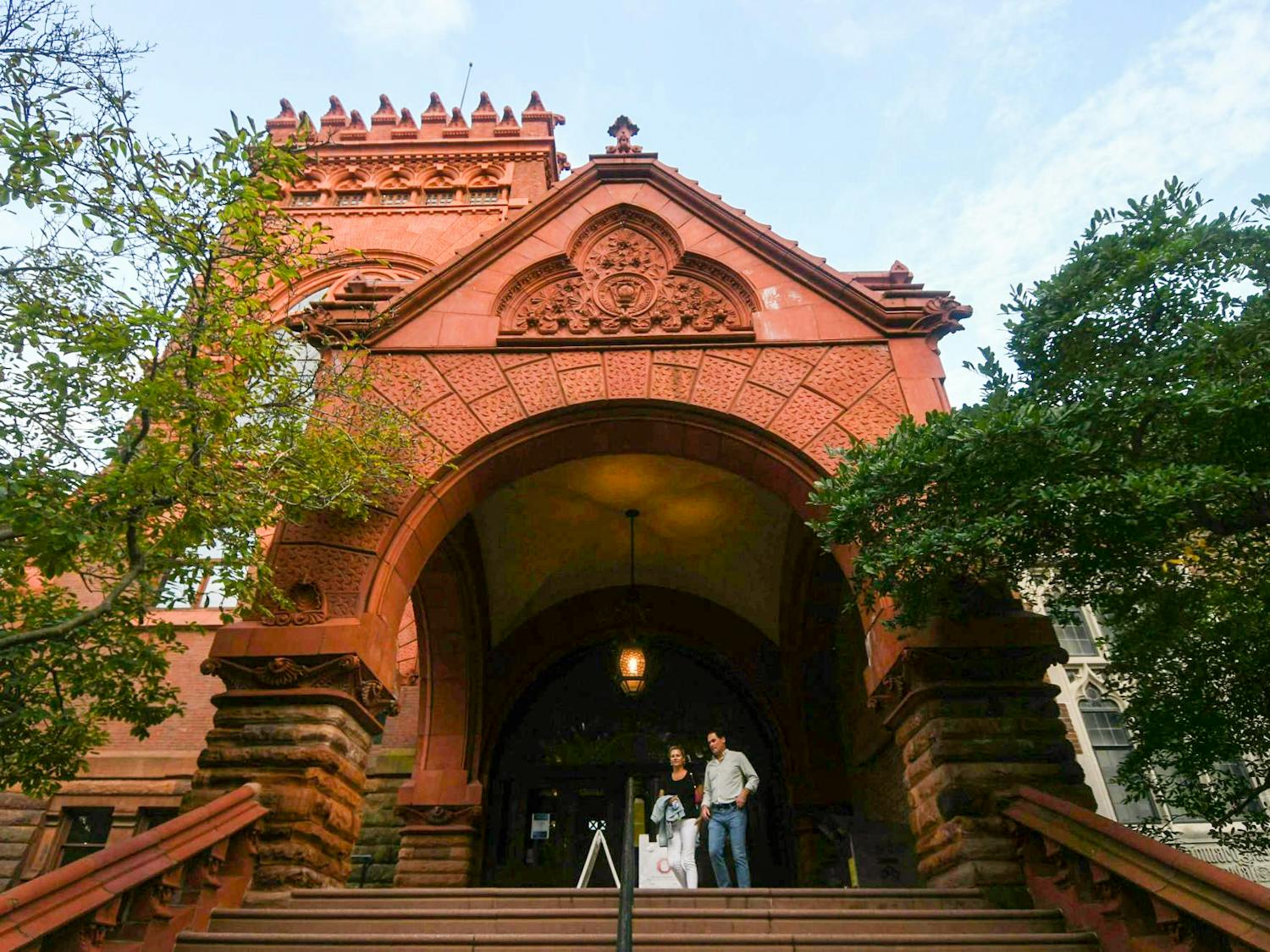After just weeks of normal instruction at the beginning of the spring semester, the COVID-19 pandemic plunged academics and student life at Penn into uncertainty, indefinitely. Since spring break, the vast majority of courses have been conducted remotely — and will continue to be mostly virtual in the spring 2021 semester.
The pandemic has prompted a flurry of University-wide policy changes, disrupted study abroad programs, and forced on-campus services, such as gyms and libraries, to close. To track cases on campus, Penn opened a testing facility in Houston Hall, which has logged hundreds of positive results to date.
Jan. 26 — Though no cases had yet been reported at Penn, the University announced in an email to undergraduates that it was monitoring the pandemic and communicating with students studying abroad in China. The email stated that students who had visited China within the past two weeks should contact Student Health Service immediately if symptoms occur.
Feb. 4 — The pandemic prompted the Penn Wharton China Center in Beijing to remain closed until at least Feb. 10.
Feb. 5 — Penn recommended that any students, faculty, or staff returning from mainland China self-isolate for 14 days upon returning to the United States. At this point, there were no cases of COVID-19 in Philadelphia or at Penn, and the risk to the Penn community was considered to be low.
March 2 — Penn suspended all University-related travel to China, South Korea, Iran, and Italy in accordance with Centers for Disease Control and Prevention guidelines. Students were also urged to reconsider any international travel plans. By March 2, COVID-19 cases had been detected in 10 states, and six people had died from the disease, all in Washington state.
March 11 — Penn joined several other universities in announcing that it would extend spring break for another week, with remote learning beginning March 23. Students who had left for spring break were told not to return to gather their belongings, while students who remained on campus for spring break had to move out by March 15.
March 12 — Penn extended the deadline to move off campus by two days to March 17 after students expressed frustration with the short timeline. Though Residential Services urged students who were off campus not to return and retrieve their belongings, many did anyway.
RELATED:
Pennsylvania reports record daily high of nearly 13,000 positive COVID-19 tests
Profs. deem online semester a success, but hope to teach in person soon
Penn Abroad urged students studying in Europe, the United Kingdom, and Ireland to return home immediately. SHS also alerted more than 100 students and faculty about potential exposure to COVID-19.
March 16 — Three Penn students tested positive for COVID-19 after traveling abroad for spring break. Twenty additional students were identified as having medium- to high-risk exposure to the virus, but most were off campus and were told to self-isolate. Penn also canceled on-campus graduation events and moved the 2020 Commencement ceremony online.
April 13 — Penn announced it would conduct all summer courses virtually. The remote summer sessions included many of the courses that were initially scheduled to be offered in person. Students expressed frustration with the unchanged price of the summer courses despite their online nature, and some chose to take classes at other universities instead. Despite this, Penn saw a 70% increase in enrollment in summer courses in the first summer session and a 30% increase in enrollment for the second summer session.
June 11 — Penn canceled all fall 2020 study abroad programs as a result of the global travel restrictions and health risks from the COVID-19 pandemic. The U.S. State Department had previously issued a Global Health Advisory of Level 4, advising Americans to avoid international travel due to the pandemic.
June 25 — Penn announced it would reopen campus housing for a hybrid fall semester. The semester would start on Sept. 1, and in-person operations would be suspended on Nov. 20. The remainder of the semester would then be conducted remotely following Thanksgiving break, including final exams. Fall break was canceled to discourage students from traveling.
July 6 — U.S. Immigration and Customs Enforcement announced that international students would be prohibited from staying in the United States if taking an entirely online course load at their university in the fall semester. Penn, along with many other universities, condemned the move. International students scrambled to confirm their enrollment in at least one in-person class for the fall semester while expressing frustration with the policy.
July 14 — The U.S. government rescinded the ICE restrictions, instead reinstating the guidelines it had issued in March, which allowed nonimmigrant students to retain their F-1 visa status within the United States while taking online courses. International students expressed relief at the policy reversal.
Aug. 11 — Penn announced it would reverse its decision to hold a hybrid fall semester, closing on-campus housing just weeks before the start of the semester. The vast majority of undergraduate classes were held remotely. Tuition froze for the fall semester, and the general fee was decreased by 10%.
Oct. 20 — Penn Libraries announced that a limited number of seats would be available in Van Pelt Library for students to study individually. Students who wished to reserve a seat in the library needed to be living on campus and be part of Penn’s COVID-19 surveillance program. To enter the building, students were told to have a green PennOpen Pass, along with confirmation of their reservation that must have been made at least four hours in advance. Students needed to abide by the precautions outlined in the Student Campus Compact, including wearing a face mask and practicing social distancing.
Oct. 30 — Penn announced it would reopen on-campus housing for the spring semester, while the majority of classes would still be taught remotely. Undergraduate students must be tested twice a week for COVID-19, and graduate students must be tested once a week. To meet the expected increased demand for testing, Penn will open seven testing sites in addition to the current site at Houston Hall. Students remain hesitant to trust this plan after Penn reversed its initial fall semester plan just weeks before the semester was set to begin.
Nov. 4 — Penn reported what was at the time a semester-high weekly count of positive COVID-19 cases, with 107 recorded cases, in the last week of October. The positivity rate was 2.2% — the second time to date the rate had risen above 2%. Of the 107 cases, 90 were undergraduate students, with 17 cases comprising graduate students, faculty, staff, and other Penn affiliates.
Nov. 19 — New citywide COVID-19 restrictions, which will remain in place until at least Jan. 1, forced the University to close indoor dining, Van Pelt Library, and the Penn Museum.
Dec. 7 — Penn transitioned to a saliva-based screen test for the rest of the fall semester and the spring 2021 semester. The University had used nasal swab testing, but switched to the FDA-approved saliva-based screening to prepare for the expected increase in demand for testing as more students return to campus in January.









